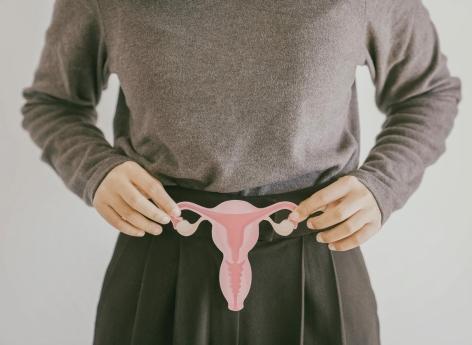Endometriosis is typically a disease of women. But it is important not to forget the companion, or partner, who is also affected by the consequences of endometriosis. Benoît Legoëdec-Mercantini, a midwife in Brittany, shed light on this subject for Fait Docteur.

- Midwives can order a fertility assessment for women but not for men.
- The midwives will support the woman suffering from endometriosis but also the spouse to maintain the balance of the couple.
- The second half of the couple is an essential source of support for the woman with endometriosis.
Endometriosis is a chronic disease characterized by the development of uterine lining (endometrium) outside the uterus (digestive tract, bladder, ovaries, peritoneum (limb covering the viscera), etc.), except in a special case called adenomyosis. where endometrial tissue is present within the muscle of the uterus (myometrium).
This pathology can be responsible for acute and chronic disabling pain. These painful phenomena can be located in different places and times: at the lumbar, pelvic, abdominal level, during menstruation, during sexual intercourse, when urinating or defecating.
Disabling pain for the couple
The presence of pain in women with endometriosis has consequences on their quality of life, at a psychological, social, professional and family level. Pain can be poorly perceived by those around you, particularly your companion. The impacts on the couple are therefore numerous, taking into account painful crises, chronic fatigue, sexual pain (dyspareunia). All of this has an impact on the couple’s sexuality. Midwife working in Côtes-d’Armor, Benoît Legoëdec-Mercantini confirms to us that “we need to work on sexuality because when there is pain, it’s more complicated”.
Endometriosis: a burdensome infertility for the couple
Endometriosis can cause fertility problems. And this infertility, already difficult to accept for the sick woman, is just as difficult for the spouse wanting to have a child. And in the context of infertility, the role of midwives, according to Benoît Legoëdec-Mercantini, is to “reassure, because infertility exists in 30% of cases of endometriosis. But it is not an obligatory path”. He confirms to us that as a midwife, it is his responsibility “possible to complement with an infertility assessment. Just to be sure that it is endometriosis that is to blame and not something else.” Midwives can “prescribe for women (hormonal balance, etc.) but not for men.” He adds that we must reassure by indicating that “endometriosis is a risk factor for infertility but it is not 100% and depends on the stage, the location…”
An interview with the woman but also with the partner
It is necessary to welcome couples for an interview for this infertility because if there is a desire for pregnancy, there is also a “problem because the treatments given to women to treat their endometriosis and relieve pain will be contraceptives or antagonists (opposed) to certain hormones” and therefore prevent pregnancies. It is therefore necessary to “know where they are in their project, what is livable for her, if we need to take the time to relieve her, etc. And this can be complicated for men who want a child who are already suffering, due to illness, a certain distance and who at the same time must understand that the woman cannot live with the pain and that if we relieve it there is no possibility of pregnancy since the treatments will work against it.”
Endometriosis: a complicated place for the spouse
The role of midwives with the partner of a woman with endometriosis is important because “It’s complicated to live with a person who is in pain, while being powerless to do something, to understand too”. And even if this is the case, the other half of the couple remains an essential source of support for the woman with endometriosis.
And it should also be noted that the fact that endometriosis is publicized is a good thing, but can also lead to trivialization by the spouse (or partner, Editor’s note). Endometriosis therefore impacts the couple but also those around them. It is necessary to remember this for optimal care.
To find out more, discover the interview in our show “Questions for the experts“:


















